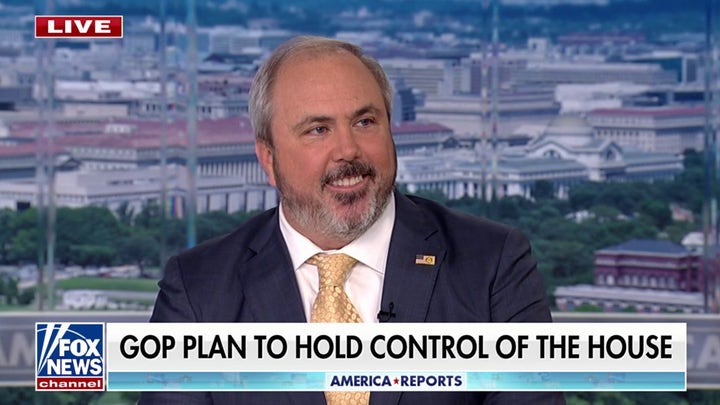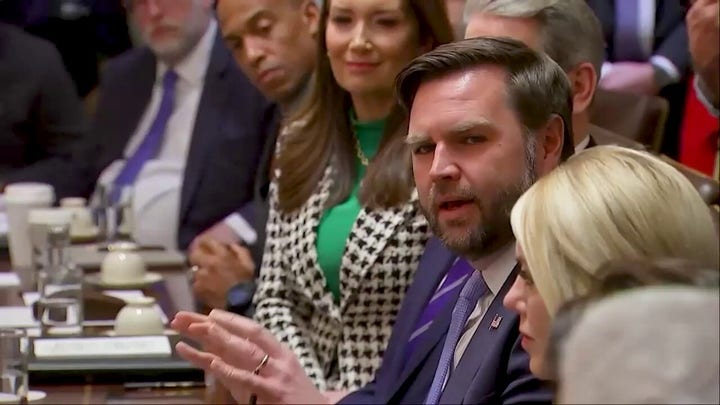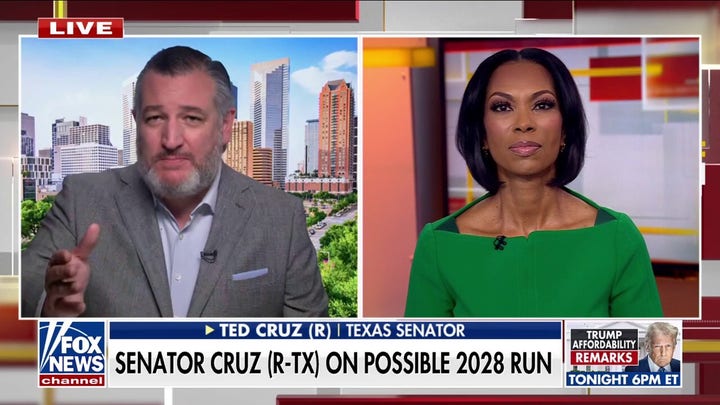The Trump administration is being urged to go on offense and make sure the next United Nations chief is aligned with U.S. and Western values and doesn’t kowtow to what critics say is an ever increasingly anti-American institution.
U.N. Secretary-General António Guterres’ tenure is set to end on Dec. 31, 2026. The former socialist prime minister of Portugal’s tenure has been beset with major wars and crises that have led to accusations of bias against him, especially when it comes to Israel.
Experts agree the Trump administration needs to keep a close handle on who is best to serve the interests of the U.S.
Anne Bayefsky, director, Touro Institute on Human Rights and the Holocaust & president, Human Rights Voices, told Fox News Digital, ‘As long as the United States continues to make the mistake of being the largest bankroller of the United Nations, and in keeping U.N. headquarters (some call a fifth column) a stone’s throw from our financial capital, it ought to care deeply about who leads the organization.’
Jonathan Wachtel, a former director of communications and a senior policy advisor at the United States Mission to the United Nations to U.S. ambassadors Nikki Haley and Kelly Craft, said that, ‘Since its inception, the United Nations has been a frontline of the Cold War, and today it is increasingly a frontline of hostility toward the United States.’
‘As the Security Council prepares for its mid‑2026 straw polls, we face the stark reality that Russia and China can veto any candidate who reflects our values, even as they work to undermine U.S. foreign policy and erode Western principles. The next secretary‑general must… be a leader with backbone and conviction to champion the ideals on which the U.N. was founded and the United States has long stood — life, liberty, and the pursuit of happiness for as many people as possible,’ he said.
With just over a year to go for the selection process, member states have begun to nominate candidates that best fit their national interests.
Brett Schaefer, a senior fellow at the American Enterprise Institute, told Fox News Digital that of the candidates named thus far, few would be considered acceptable to the U.S. ‘The announced and rumored candidates… are for the most part either U.N. insiders or on the left side of the political spectrum,’ Schaefer said. ‘It’s hard to say that the U.S. would be willing to support any of them at the current stage.’
As the electioneering gets underway, Hugh Dugan, former National Security Council Special Assistant to the President and Senior Director for International Organization Affairs, told Fox News Digital that, ‘After campaigns and a series of straw pulls and eliminations of candidates, members of the Security Council will present the U.N. General Assembly with a preferred candidate for their formal acceptance late next year.’
Dugan said that custom would indicate that the next secretary-general should come from Latin America. He also emphasized that there is an appetite to appoint a woman candidate after 15 years of calls for a female Secretary-General.
‘If they really are to take the helm of a suffering, more or less irrelevant, and unmanageable organization like this, they’re going to have to show up as managers,’ Dugan said.
In the midst of the election’s ‘three-ring circus,’ he said there are six candidates who have officially been named and an additional eight who are considered possible contenders for the role.
Declared Candidates:
Seemingly the most palatable candidate for the U.S. of those declared is the current head of the International Atomic Energy Agency, Rafael Grossi of Argentina. An Argentine diplomat, Grossi has been dealing with Iran’s ambition to develop nuclear weapons while also working to prevent a nuclear disaster in Russia’s war against Ukraine. Schaefer says that Grossi is ‘probably the most acceptable among the candidates that have been listed so far’ given the ‘great deal of courage’ he has shown in his role at the IAEA.
Others include: Former Bolivian Vice President David Choquehuanca. A member of the Movement for Socialism. Choquehuanca once expressed his disdain for Western thinking after his election as Bolivia’s foreign minister.
Former Chilean President Michelle Bachelet was the U.N. High Commissioner for Human Rights between 2018 and 2022. U.N. Watch said that in this role, Bachelet often condemned Israel and the U.S. but ‘turned a blind eye to widespread violations by China, Turkey, North Korea, Cuba, Eritrea,’ and others.
According to Schaefer, it is ‘extraordinarily unlikely that [Bachelet] would receive support from the U.S.’ given her political leanings and her ‘remarkable lack of bravery in the conduct of her position as the high commissioner for human rights.’
Former Vice President of Costa Rica Rebeca Grynspan, who headed the U.N. Conference on Trade and Development (UNCTAD.) Grynspan had recommended regulation as a means ‘to address the deepening asymmetries’ of international finance.
Schaefer said Grynspan would not ‘be an ideal candidate from a U.S. perspective,’ as her 30-year U.N. career makes her a ‘consummate insider’ who would likely be unwilling ‘to shake up the system.’
The field is rounded up by two outside candidates, Colombe Cahen-Salvador, a left-wing political activist and co-founder of the Atlas Movement, and Bruno Donat, a joint Mauritius-U.S. citizen and official at U.N. Mine Action Service.
Possible Candidates
Though they have not been officially named by a member state, Dugan listed several other officials that are likely to be nominated in the coming months. Many come from the left of the political aisle, and are unlikely to get the backing of the Trump administration.
Jacinda Ardern, a former prime minister of New Zealand, who resigned from the role but is considered ‘a global icon of the left.’ Schaefer noted that Ardern’s prior resignation is not ‘a ringing endorsement’ of her capability to take on the demanding role of secretary-general.
Mexico’s former top diplomat, Alicia Bárcena, has 14 years of experience as the head of the U.N.’s Economic Commission for Latin America and the Caribbean. She is presently the secretary of environment and natural resources.
Other names include: María Fernanda Espinosa formerly defense and foreign minister of Ecuador, Nigeria’s Amina Mohammed, U.N. deputy secretary‑general, Kristalina Georgieva, managing director of the International Monetary Fund since 2019 of Bulgaria, and former head of the U.N. Development Programme Achim Steiner of Germany.
Bayefsky said that, ‘A long list of anti-American secretaries-general, topped off by the profoundly hostile Antonio Guterres, have done enormous damage to America’s international relations, fueled antisemitism on a global scale, and gravely diminished global peace and security. We take a back seat in this election at our peril.’




